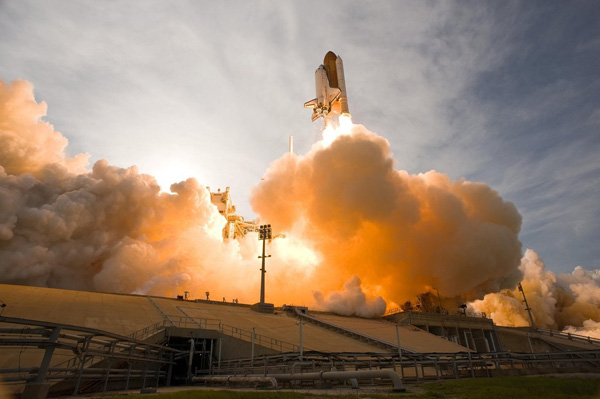Global titans fuel expansion as Korea sets its sights on the stars

[Image of a Rocket. Credit to Pixabay]
The space industry is undergoing a dynamic resurgence, driven by innovation and fierce competition among leading private enterprises and national agencies.
As global ambitions reach new heights, major players like Elon Musk’s SpaceX and Jeff Bezos’ Blue Origin are advancing rapidly, igniting a renewed space race that blends technological prowess with strategic maneuvers.
Musk’s SpaceX continues to be a dominant force, renowned for its groundbreaking achievements in reusable rocket technology and satellite deployment.
Recent milestones include securing over $730 million in contracts for nine U.S. military satellite projects—demonstrating not only its technological superiority but also its strategic importance to national security.
The company’s revenue has surged from $9 billion in 2023 to a projected $15 billion in 2024, solidifying its status as the global leader in space exploration and services.
With its Starship program pushing the boundaries of human space travel and potential missions to Mars on the horizon, SpaceX is more than just a competitor; it is setting the benchmark for the future of space exploration.
Meanwhile, Jeff Bezos’ Blue Origin, despite being a highly regarded entity in the private space sector, has faced delays that have placed it behind SpaceX.
However, recent reports indicate that Blue Origin is preparing a strategic shift by exploring acquisitions of aerospace divisions from legacy companies like Boeing.
Such acquisitions could boost Blue Origin’s technical capabilities and secure stable government contracts, enhancing the company’s ability to compete more directly with SpaceX.
Bezos’ vision of an interconnected future where space tourism and government projects go hand-in-hand may soon become more tangible as Blue Origin diversifies and scales up its operations.
The resurgence of the space industry extends beyond the United States. The global space market, valued at $386 billion in 2021, is expected to exceed $1 trillion by 2040, according to major investment banks.
This projection underscores the immense potential for technological, economic, and strategic growth.
Specific sectors within the space industry such as satellite technology, lunar exploration, and reusable launch systems are set to expand rapidly.
Korea, although still emerging in the space race, is making bold moves. The recent launch of the Korea AeroSpace Administration (KASA) marks a significant milestone in the country’s ambition to strengthen its space capabilities.
Modeled after NASA, KASA aims to consolidate Korea’s space policies and projects, driving the nation toward greater involvement in satellite communications, lunar missions, and space technology development.
While Korea’s industry is still maturing compared to U.S. giants, its initiatives in low-orbit satellite systems and the development of reusable launch vehicles signify a commitment to becoming a player in the global space arena.
The motivations behind this space boom are not purely scientific or economic; they are also deeply tied with political strategy.
The involvement of leaders like Musk and Bezos extends beyond engineering feats to influencing policy and politics.
Both billionaires have demonstrated their willingness to engage in lobbying and political endorsements, signaling how interconnected the private space sector and government interests have become.
For instance, Bezos has supported candidates and initiatives that align with his vision for Blue Origin, while Musk has similarly invested in political activities that could benefit SpaceX’s future contracts and projects.
As countries and companies compete for a place in the growing space industry, both partnerships and rivalries will play a key role in shaping the future.
The renewed race is more than just launching rockets; it’s about securing technological leadership and economic leverage in a field that promises to redefine humanity’s future.
For nations like Korea, building key alliances and leveraging their growing aerospace expertise will be crucial in this new era of space exploration.

- David Minjae Ko / Grade 12
- Seoul Science High School

![THE HERALD STUDENT REPORTERS [US]](/assets/images/logo_student_us.png)
![THE HERALD STUDENT REPORTERS [Canada]](/assets/images/logo_student_ca.png)
